How to Reduce Your Heating Costs This Winter
By Amanda Harvey
Updated on November 15, 2024
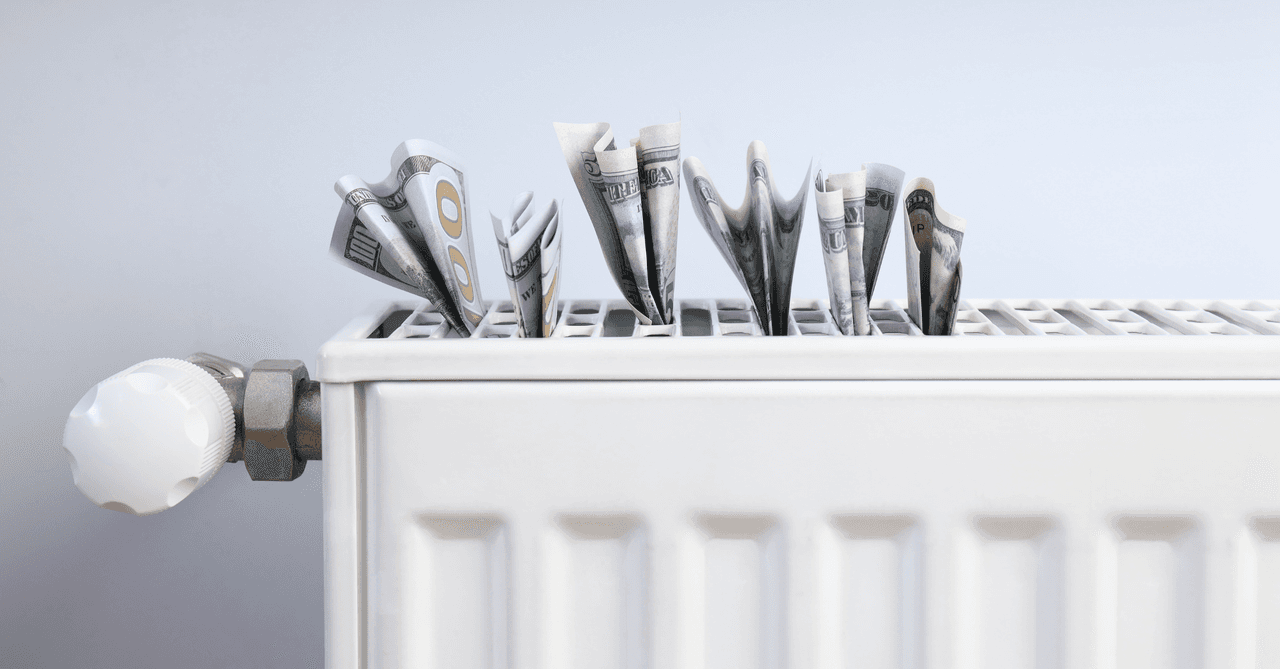
The inevitable high heating costs come with the cold front setting in, keeping everyone warm and cozy inside. To avoid skyrocketing bills and limit the amount owed, finding effective ways of reducing your heating costs becomes paramount.
10 Tips for Reducing Wintertime Home Heating Costs
1) Opt for double or triple glazing
If your house is particularly old, you might need to replace your windows and doors with new, more efficient models. Note that double- and triple-glazed ENERGY STAR-certified windows are about 20–40% more efficient than traditional windows. While an expensive purchase, since it allows you to cut your heating costs by up to 50%, this renovation project is more than worthwhile!
2) Draft-proof your home

Air leaks are probably your wallet’s number one foe during wintertime, especially since they can surface just about anywhere in your house. To eliminate the problem at hand, walk through your house and take a closer look at all areas likely to allow cold air to seep in. Here are two wintertime energy-saving tips:
Caulk Your Windows to Improve Insulation
Cracked or poorly caulked windows are a gateway to cold air leaks. Check all your windows to pinpoint any and all potential drafts. Note that the majority of leaks occur between the window trim and pane. Don’t wait too long, replace the caulking around your windows before the first snowfall.
Keep Your Interior Doors Closed
If your home is only fitted with an electric heating system, better keep your doors closed. That way, each room can be heated accordingly, avoiding unnecessary heat loss to adjacent areas.
Don’t forget to insulate your electrical outlets, including areas where cables or pipes are channelled through. As for doors, install door sweeps or weatherstripping on all bottom edges.
3) Maintain heating equipment
Heating system maintenance is paramount to prevent equipment failure or inefficiency. Depending on the type of heating system used, different guidelines apply:
Chimneys: Sweep it once or twice a winter, ensuring optimal efficiency.
Furnace: Replace filters as often as necessary.
Boilers: Annual maintenance is required, otherwise you risk using 10% more energy. Note that boilers must be replaced every 15 years and should never be used at temperatures above 50 degrees.
Electric radiators: Regularly dust your heaters and clean them, top to bottom, once a year.
Gas boilers: Hire a maintenance professional at least once a year.
Hot air system: Annual maintenance is essential to ensure system efficiency.
4) Clear space around heating devices
Avoid positioning furniture in front of floor vents, radiators, or convectors. Doing so will hinder airflow and prevent even heat distribution. Not only will it overwork your heating system, but it’ll also limit its efficiency. By clearing the space around heating devices, you’ll ensure optimal heat distribution. It’s a small step forward and one that can truly make a difference in comfort and savings by year’s end.
5) Opt for programmable thermostats
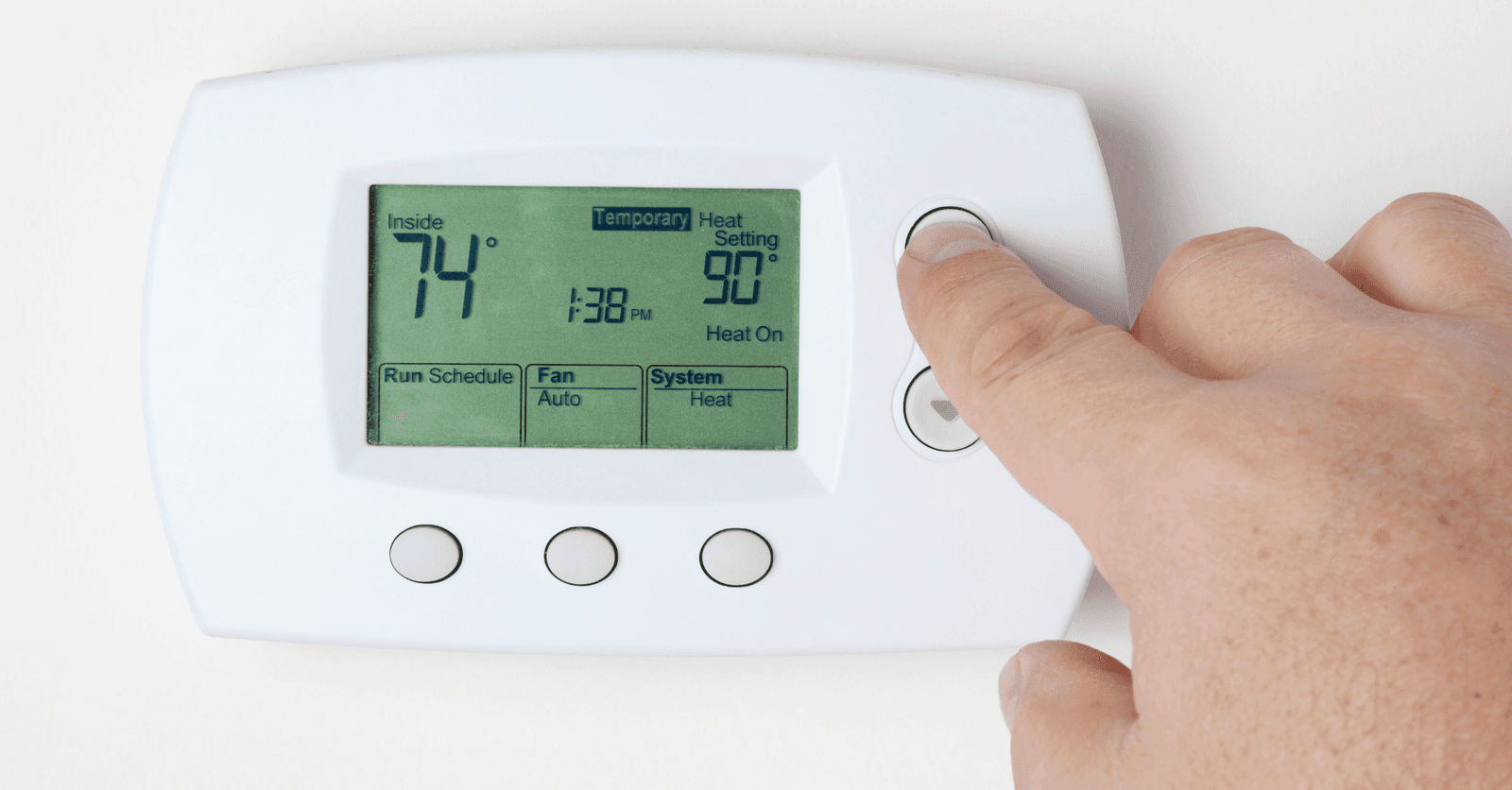
Switching your old thermoregulator for an electronic thermostat means cutting your heating bill by at least 5%. If, for whatever reason, you decide not to replace all of them, hire an electrician to replace at least the ones found in rooms with greater heating needs. Your new thermostats’ heating intensity should be chosen on account of your baseboards’ heating power.
By choosing programmable electronic models, you can manage temperature variations better, reducing the possibility of overheating your home. Ideally, thermostats should be independently set, ensuring that they aren’t fixed in proximity to heating devices.
6) Avoid unnecessarily overheating your home
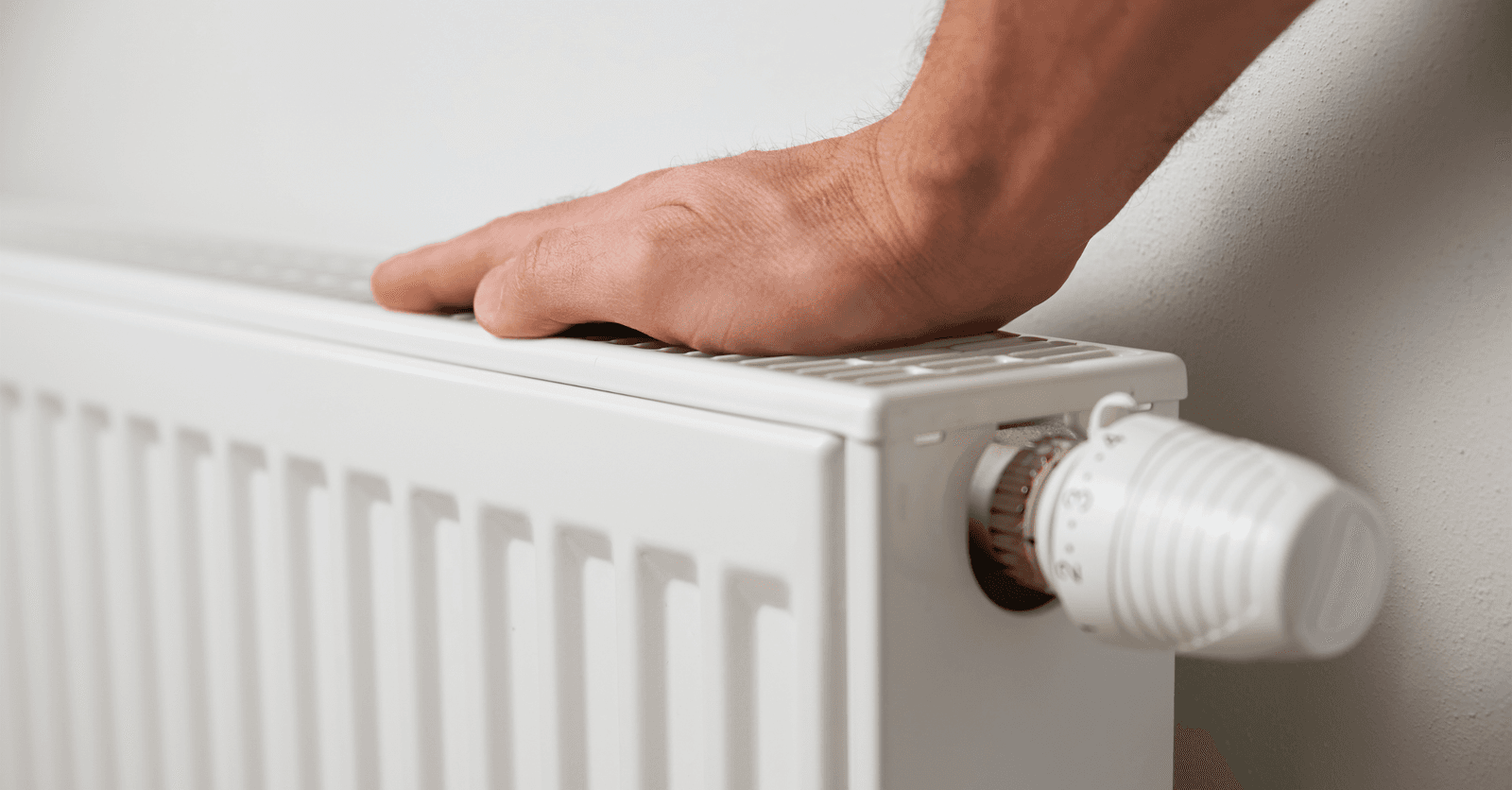
At What Temperature Should You Keep Your House?
To enjoy a comfortable temperature without paying through the roof, maintaining a room temperature of around 19–21°C (66–70°F) is recommended for common or high-foot-traffic areas like the living room or kitchen. In bedrooms, a slightly cooler temperature, 16–18°C (60–64°F), is often recommended given that it promotes better sleep.
Lower the Temperature at Night
Lowering the temperature throughout your house at night is one of the most effective ways of reducing your heating costs without compromising your comfort. By turning down your thermostat by 3–5°C, for example, you can save up to 10% on your annual heating bill. With a programmable thermostat, you can program this temperature drop every night and reset it to a more comfortable temperature in the morning.
At What Temperature Should You Keep Your House When Away?
It’s only natural that you want to enjoy a warmer ambient temperature when home. However, don’t be fooled by the idea of turning off your heat completely. Doing so risks freezing your water supply pipes, which is quite counterproductive. Keep your home at around 16 degrees minimum to prevent the latter. Note that just these few degrees below comfort can help you save some money on your heating bill. Interesting, huh?
7) Close curtains at night, and leave them open during the daytime
Opening your curtains and blinds can have a huge impact on regulating the temperature inside your home. Hence, leaving them open during the day is recommended to benefit from the sun’s heat. On the flip side, keep them closed at night to avoid lowering the temperature in your house. Opt for thicker curtains; they’re better at blocking the cold air seeping in from the windows.
Looking to buy blinds?
We recommend Quebec-based company StoresBoutique.ca: custom-made blinds, sought-after products, but above all else, the best warranties for a stress-free purchase.
8) Have your ventilation ducts cleaned
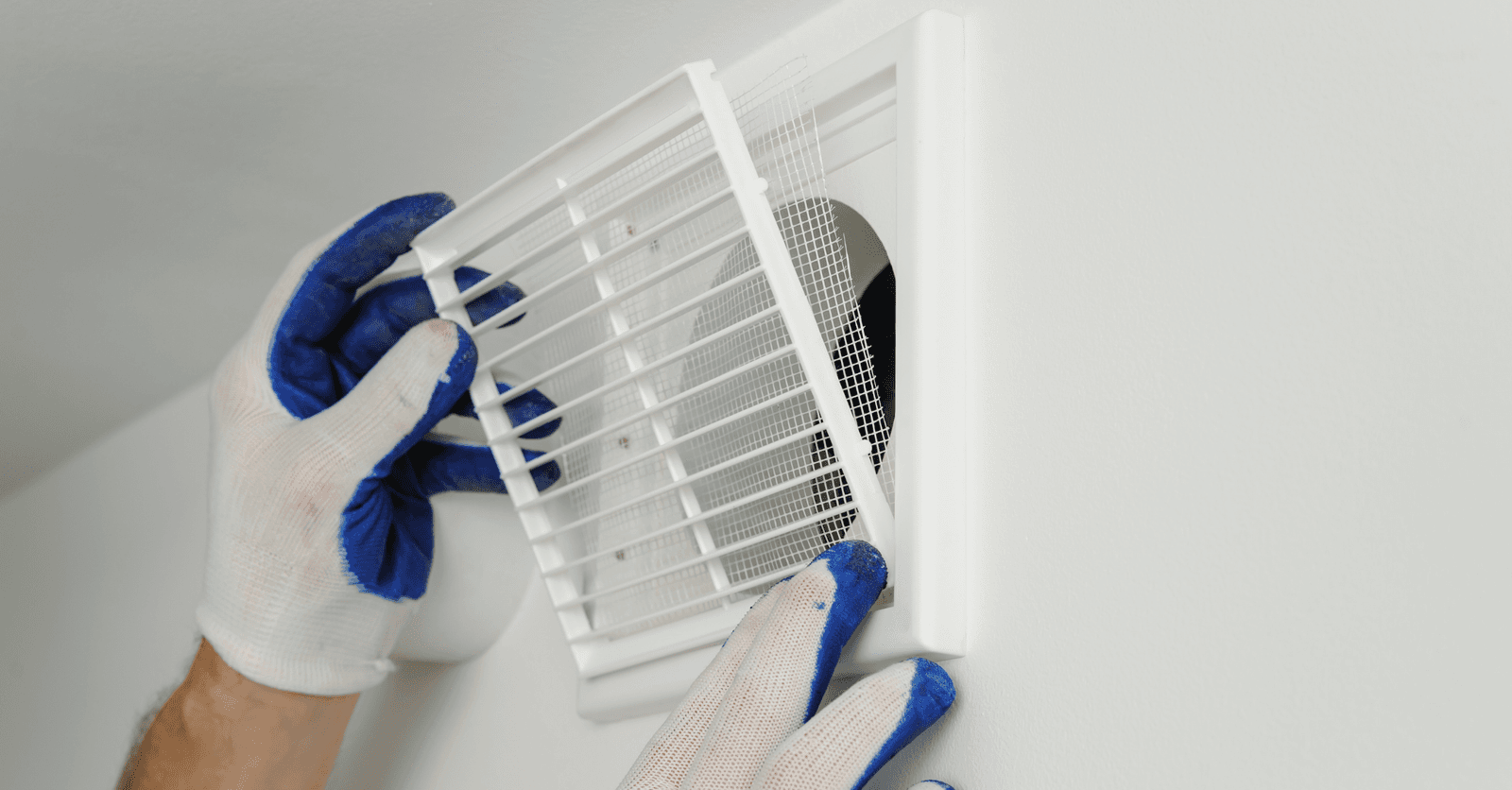
Source: Canva
Given that ventilation ducts greatly affect heating and air conditioning equipment efficiency, they should be cleaned every three years. Doing so will help limit heat loss resulting from a build-up of dirt inside the ducts. Moreover, duct maintenance will improve air quality inside the dwelling, eliminating bacteria, mould, and germs.
9) Manage the humidity level inside your home—use a humidifier
Maintaining an appropriate humidity level (roughly 30%) can improve indoor air quality, rendering it more comfortable and allowing for better heat flow. Overly dry air, which is a common occurrence during winter, can mask as crisp air even when the temperature is high. By using a humidifier, you can slightly increase the humidity level, if necessary. The temperature felt inside your home can seem more enjoyable, yet you won’t be using excessive heat.
10) How to reduce hot water costs—adjust your water heater’s temperature
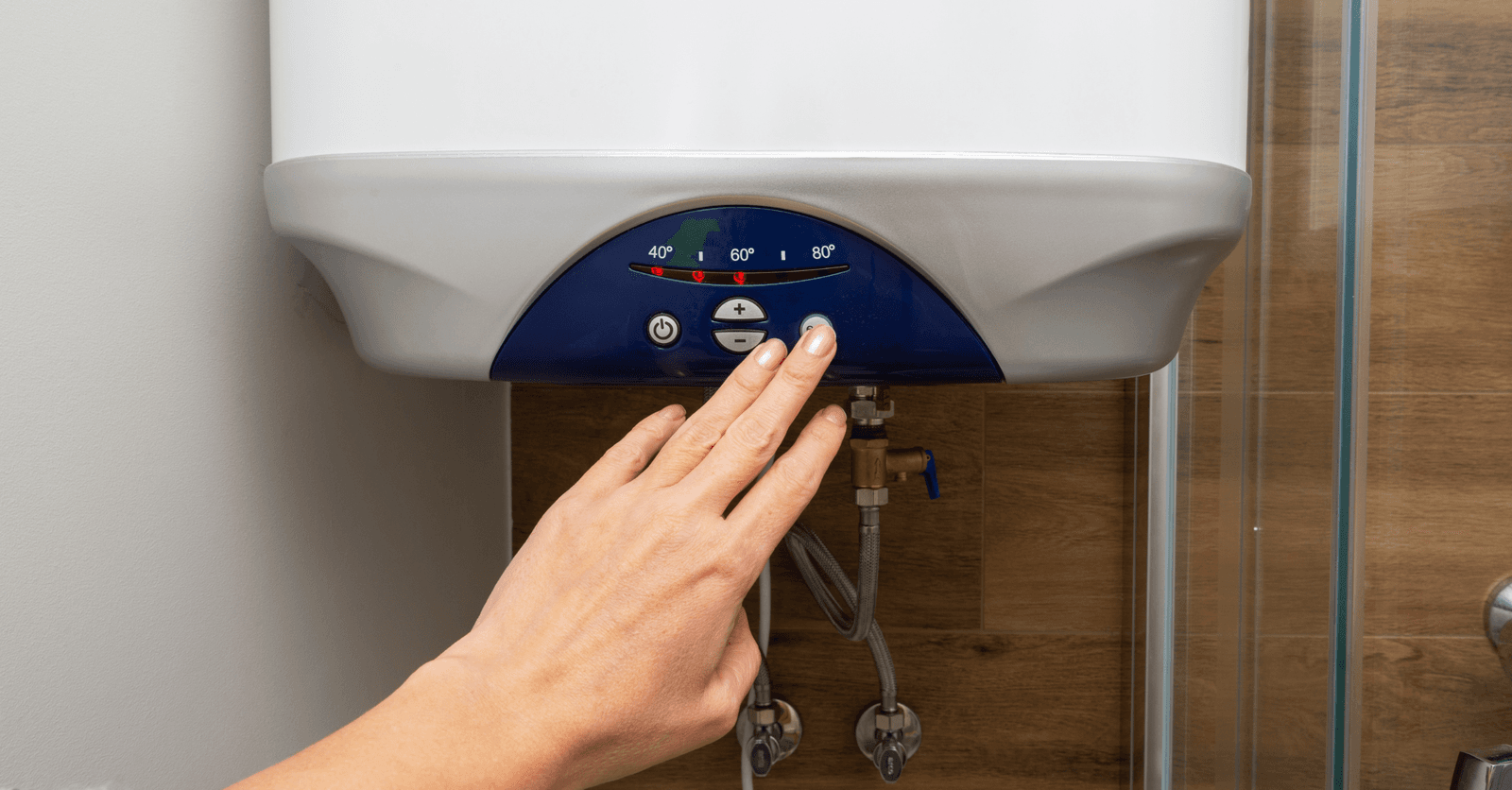
By lowering your water heater’s temperature to 55 degrees, you can save on your heating bill while preventing premature system soiling. Worth it, don't you think?
And, if you plan on leaving for more than a couple of days (at least 4–5 days), shutting off your water heater is recommended. However, don’t drink tepid water when returning.
Having an issue with your water heater? Check out our article about handy, quick fixes.
FAQ Ways of Cutting Back on Your Heating Needs
How to keep your heating bill low?
Here are some tips and helpful pointers to reduce your energy use during the winter:
Tips for Cutting Heating Costs | Pointers |
Replace windows and doors | Ideally, opt for double- or triple-glazed, ENERGY STAR-certified windows |
Draft-proof your home | This includes doors and windows, electrical outlets, and areas where cables and pipes are channelled |
Keep doors closed | Doing so will prevent heat loss (unless you have a chimney) |
Maintain heating equipment | Have your heating devices cleaned and filters changed when needed |
Avoid overheating your home | Maintain bedrooms at 18 degrees; common areas at 21 degrees maximum |
Opt for programmable thermostats | Focus on replacing thermostats in areas requiring more heating |
Install thick curtains | Close them at night, that way they’ll block cold air drafts cutting through windows |
Have your ventilation ducts cleaned | Ventilation ducts should be cleaned every 3 years |
Lower your water heater’s temperature | 55 degrees is plenty; you’ll save money and limit your device’s soiling |
How can I save money on gas-fired heating?
Much like electric heaters, to reduce your gas-fired heating costs, you have to start by limiting heat loss by improving your home’s insulation, especially when it comes to windows, doors, and attic space. You can also consider installing a programmable thermostat and lowering the temperature by a few degrees at night or when absent. Make sure your boiler is well-maintained and working efficiently. Lastly, opt for thick curtains to retain heat at night, and allow sunlight to filter in during the daytime to naturally heat your home.
How much does one degree on a thermostat cost?
The cost of one degree of heating depends on the size of the home in question, the heating system’s efficiency, and the temperature outside. However, on average, every additional degree can increase energy consumption by roughly 5–7%, which can significantly increase your heating bill.
Looking for something else?
Related articles
The latest industry news, interviews, technologies, and resources.

Amanda Harvey
•03 Nov 2025
It has become common to preserve and experiment with concrete surfaces both inside and outside of the home. Modern homeowners are exploring the possibilities of painting concrete, offering an alternative to its more commonly known drab shades of grey.

Editorial Team
•21 Dec 2023
When the months start to feel warmer, there’s nothing we crave more than some time outside. There are plenty of ways to make the most of your front or backyard, and this includes building a beautiful deck. If you’ve been considering this project but are having a hard time making a concrete choice between the different materials on the market, then look no further!

Editorial Team
•19 Nov 2025
La gestion de CNESST (Commission des normes, de l’équité, de la santé et de la sécurité du travail) is often seen as a simple administrative formality, focused on the annual payroll declaration. However, for SMEs in the construction sector, effective CNESST management goes far beyond this obligation. Optimizing health and safety on worksites, anticipating risks, and keeping up with regulatory changes are essential to controlling costs, protecting workers, and ensuring the long-term sustainability of the business. To fully benefit from these practices and avoid common pitfalls, it is important to lay a strong foundation for your company from the outset.

Editorial Team
•22 Jul 2025
Depending on the household, the utility of the basement differs from place to place. Whether it’s used as a family room, a home theatre or your personal warehouse, there is always room for improvement. However, when it comes to acting on this desire for change you may be faced with a lack of inspiration.

Cynthia Pigeon
•08 Nov 2023
The residential kitchen really has evolved through the years: it's kept up with design trends, new technologies, and the occupant’s habits. It used to be a gathering point where people spent hours cooking, cleaning, and socializing.